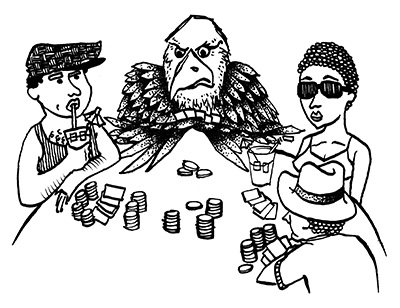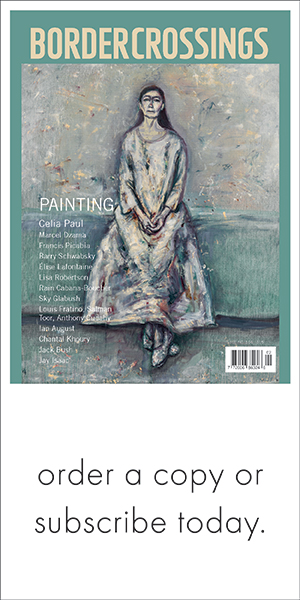Just before the 1997 Super Bowl, Jay Cohen founded an online sports betting company called World Sports Exchange (WSEX) on the Caribbean island of Antigua. Within two years there were 119 licensed sites operating out of the island, making internet gambling Antigua’s largest industry except for tourism. The sites were focused on sports betting, and many of the target clients were Americans. WSEX attracted the attention of the U.S. Justice Department, and when Cohen voluntarily returned to his native United States in 2000 to contest its attempts to shut WSEX down, he was jailed under a law prohibiting cross-state sports bets by telephone.
The U.S. government position was simple: internet gambling is criminal. It went after the Antiguan industry, taking actions against credit card companies and delivery companies to prevent American citizens from placing bets and successfully pressuring advertisers, including online advertisers, to refuse their ads. Was Antigua about to lose its bet on internet gambling?
Internet Gambling Offshore: Caribbean Struggles over Casino Capitalism is about what happened next. Author Andrew F. Cooper is a political scientist at the Waterloo-based Centre for International Governance Innovation (CIGI), which, appropriately enough, occupies the grounds of an old Seagram plant where whisky was distilled for sale to the United States during prohibition. His book is part of Palgrave Macmillan’s series of short, scholarly books on specific topics, but Internet Gambling Offshore will be of interest to many non-specialists also, as it provides food for thought about each of the three words in the title: the internet’s impact on international trade, gambling’s move to the mainstream, and the clash between sovereignty and a global trading system as industries move offshore.

Norman Yeung
What did happen next? In 2003 tiny Antigua, with its population of 70,000, implausibly took the mighty USA to the World Trade Organization to charge that measures “that affect the cross-border supply of gambling and betting services” were inconsistent with American obligations under the General Agreement on Trade in Services. The case challenges WTO skeptics (the reviewers included) who assume that the deck of international trade law is stacked in favour of large economies, raising the possibility that the WTO and its rule-based system, however flawed, could actually be a tool for small countries to use in a search for justice.
In international disputes small countries often look to form coalitions to pursue their goals, searching out fellow Lilliputians to help them tie down Gulliver, but Cooper highlights Antigua’s unusual decision to go it alone. As a tiny state, Antiguan political and economic life was “beset by gaps in governance,” but as an early entrant to internet gambling Antigua had incentives to establish a sound reputation for its industry. Taking its case to the WTO—appealing to international standards of fairness—strengthened those incentives and Antigua established genuine regulations for its industry, including the installation of “black boxes” to monitor betting transactions so that client complaints could be addressed.
Under GATS, states may prohibit forms of trade that affect “public morals,” alcohol being a common example. The U.S. chose to use this language to argue its case against Antigua. But if a state wants to ban foreign suppliers under a public morals exemption it must ban domestic suppliers as well, and the American case could not be reconciled with the existence of a strong domestic gambling industry. Gambling addicts need only go to a corner store to find an easy fix, enclaves such as Las Vegas and Atlantic City have made the transition to mainstream respectability, and other forms of remote gambling, such as off-track horse betting, are also widespread, and are specifically exempt from American anti-gambling laws.
Politicians such as Arizona senator Jon Kyl tried to differentiate internet gambling from its bricks-and-mortar cousin, framing internet gambling as a cyber-vice. Internet gambling firms were painted as shady operations “able to alter, move or erase sites within minutes.” Cockroach-like, they would flee into the shadows on exposure, re-emerging later in some other safe haven. They were vehicles for money laundering, enablers of underage gambling, with lax customer safeguards open to fraudulent behaviour. They were compared to crack cocaine and terrorism.
Internet Gambling Offshore covers the case in admirable depth, although at times the thread of the narrative is difficult to pick out, and a little more setting of context would have helped these readers (what it really means for an internet gambling company to be based in Antigua, for example, or what mix of activities make up internet gambling). Cooper’s detailed study draws out the very different domestic dynamics that drove the case forward in Antigua, with its handful of key individuals, and in the U.S., with its strange coalition of interest groups—social conservatives, left-wing economic nationalists, the gambling industry and the National Football League.
Ultimately, the American efforts could not reconcile the increasingly mainstream nature of domestic “gaming” with a contention that online sports betting is a threat to society, and the WTO handed down a verdict in Antigua’s favour in 2004, reinforcing it a year later by rejecting an American appeal.
The story does not end there. The WTO has no ability to enforce changes to domestic laws, and Cooper argues that “the most striking feature of the overall American reaction to the Antigua challenge has continued to be the lack of appetite among any sector of opinion or authority to acknowledge that the WTO, or indeed any other external institution, should have any say over the American way of dealing with gambling.” In fact, with the 2006 Unlawful Internet Gambling Enforcement Act the United States escalated its campaign to target non-American citizens and companies, including companies legitimate enough to be listed on the London Stock Exchange.
In the face of American non-compliance, the WTO gave Antigua the right to retaliate, but given its dependence on the U.S. for tourism, retaliation was too risky a route for tiny Antigua to pursue, and when bilateral negotiations failed to produce a deal the island was left empty handed. Without assured access to the nearby U.S. market, Antigua was unable to maintain a distinctive advantage as a hosting location, and by 2009 Antigua’s segment of the internet gambling industry had fallen to a mere twelve companies. WSEX, the company that started it all, was “in a death spiral.”
The case raises serious questions about American commitment to international trade rules. In industries such as film and television, where American exports have been at stake, the U.S. has consistently called for a “level playing field” approach to international trade that restricts states’ rights to invoke cultural exemptions. When it comes to internet traffic the U.S. has also adopted the language of universal rules and has embarked on a campaign for “internet freedom.” Only in those cases where an American domestic industry needs protection does national sovereignty become an important principle. The United States is hardly alone in acting out of self-interest, but its relative size gives it options that are not open to smaller states.
While Cooper does call out the American laws as “hypocritical,” and while he accepts that Antigua’s WTO victory ended up being “largely symbolic,” he sees some silver linings to the case. “At the very least [it] forced the United States to pay attention to argumentation, while potentially nudging the superpower to negotiate a settlement.” The WTO was “a valuable bully pulpit to make the argument that Antigua was being constantly denied justice and equity.” These seem like small consolations. Cooper writes that “the standard view of the role of small developing countries with reference to the WTO is that they are placed at an asymmetrical disadvantage” because of their vulnerability on multiple fronts. Antigua’s ultimately quixotic adventure reinforces, rather than challenges, this view.
Antigua’s victory was pyrrhic, but the global internet gambling industry continues to grow. It may be that, as gambling scholar I. Nelson Rose wrote some years ago, “as more developing countries turn to legalization, taxation, and regulation … the U.S. federal government will be forced to shift away from a complete prohibitionist position to one of reluctant tolerance.”
The American images of a malignant cyber-vice have proven to be largely mirages. To be sure, the industry has a murky past—although perhaps not as murky as Las Vegas—and there have been incidents of fraud, but a strong component of the industry defies this characterization, partly because of Antigua’s efforts to regulate its own industry. Poker has become an increasingly large part of the internet gambling industry, and sites such as Bodog.com, PokerStars.com and FullTiltPoker.com have established good reputations for customer service, including prompt payouts and protection from cheaters. They have endeavoured to fight the U.S. stigmatization campaign by bringing their industry “into the light” and have hired lobbyists to fight for regulatory bills in the U.S. Congress. As Alfonse D’Amato, the head of the lobbying group Poker Players Alliance, wrote last year, “this is just about the only industry I know of that has basically begged to be taxed—only to be ignored by politicians.”
In fact, internet gambling has acquired a quasi–legitimate status even in the U.S. itself. Prominent gambling sites such as PokerStars.com and FullTiltPoker.com cannot legally advertise on American television, but they run advertisements for their “play money” equivalents, usually a .net domain name, with a wink and a nudge. They do not take direct money transfers from American players, but they do sponsor poker tournaments and American television shows. The growing popularity of online Texas Hold’em poker has led to a surge of young professional poker players, many of them American, who adopt a highly mathematical, aggressive approach to the game. These “internet players” have made a mark on offline (legal) poker institutions in the U.S.; the three most recent winners of the World Series of Poker Main Event were aged 21, 21 and 23 respectively. Yet the American government maintains that the websites on which they play every day are illegal operations.
On April 15, 2011, just before this article went to press, PokerStars.com, FullTiltPoker.com and AbsolutePoker.com were shut down by the FBI and their founders charged with several offences, including fraud. Their U.S. assets were seized, leaving millions of American players unable to access their funds. And while this does not necessarily signal a broader crackdown by the Obama administration, it does reflect the continuing challenges to online poker’s full legitimation.
But gambling is an industry that demands regulation, and the continued American insistence on prohibition and stigmatization risks becoming self-fulfilling. Some small jurisdictions with large internet gambling industries have not been able to enforce regulations in the way that Antigua did. Cooper describes a recent scandal in which “employees at Absolute Poker rigged software so that they were able to see the cards of other players,” and proceeded to fleece high-stakes gamblers out of millions of dollars. The site was based out of the small Kahnawake reserve in Quebec and the only regulatory authority was the Kahnawake Gaming Commission. Absolute Poker is owned by a former grand chief of Kahnawake and, unsurprisingly, the companies were punished lightly. If internet gambling was a regulated industry, the affair could have been investigated by law enforcement, but instead, such shady behaviour continues to be a stain on the reputation of internet gambling sites.
Andrew Cooper has produced the first book to focus on this important case and it will probably be the definitive account. It is scholarly and the language is careful: he emphasizes the case’s “deep elements of blurring and ambiguity” and discusses the broader implications only in the final chapter, and then cautiously. It is unfair to criticize a book for not being something it was never intended to be, so let’s say that Internet Gambling Offshore shows that there is a popular book waiting to be written around the events and themes of this case, and when it is written Cooper’s book will be one of the key sources.

